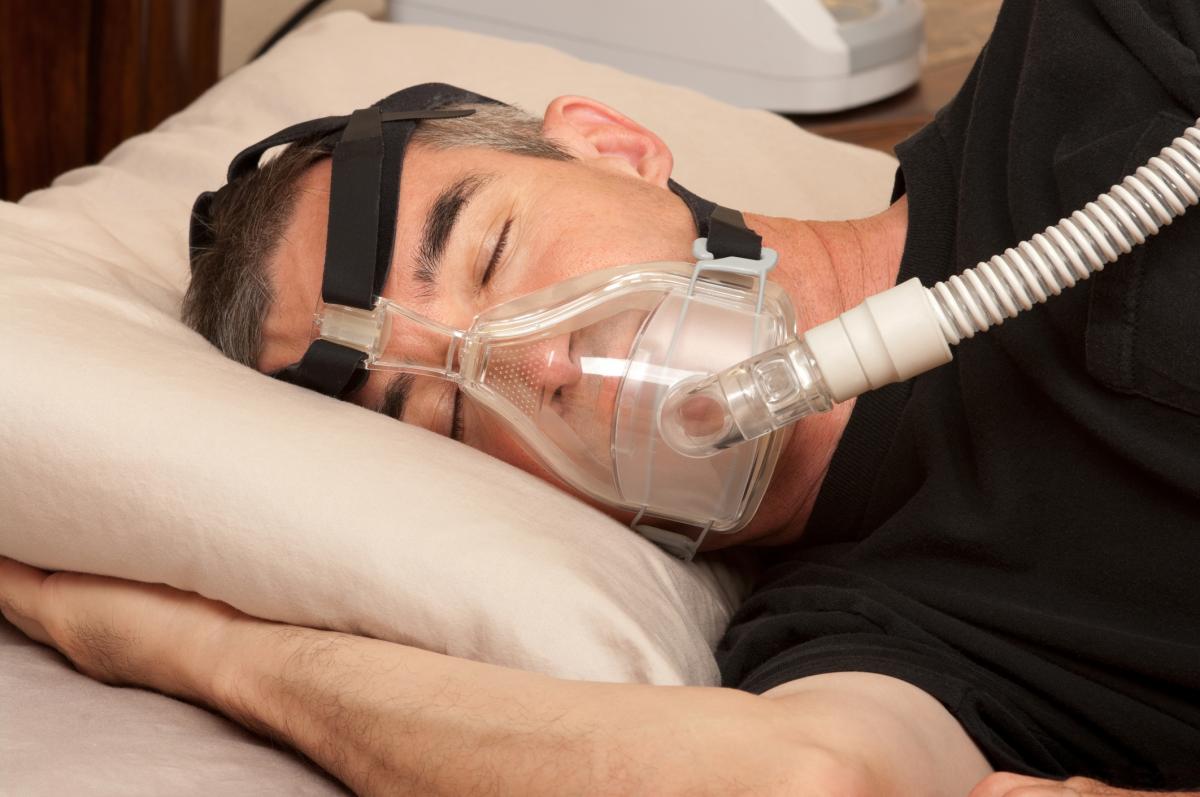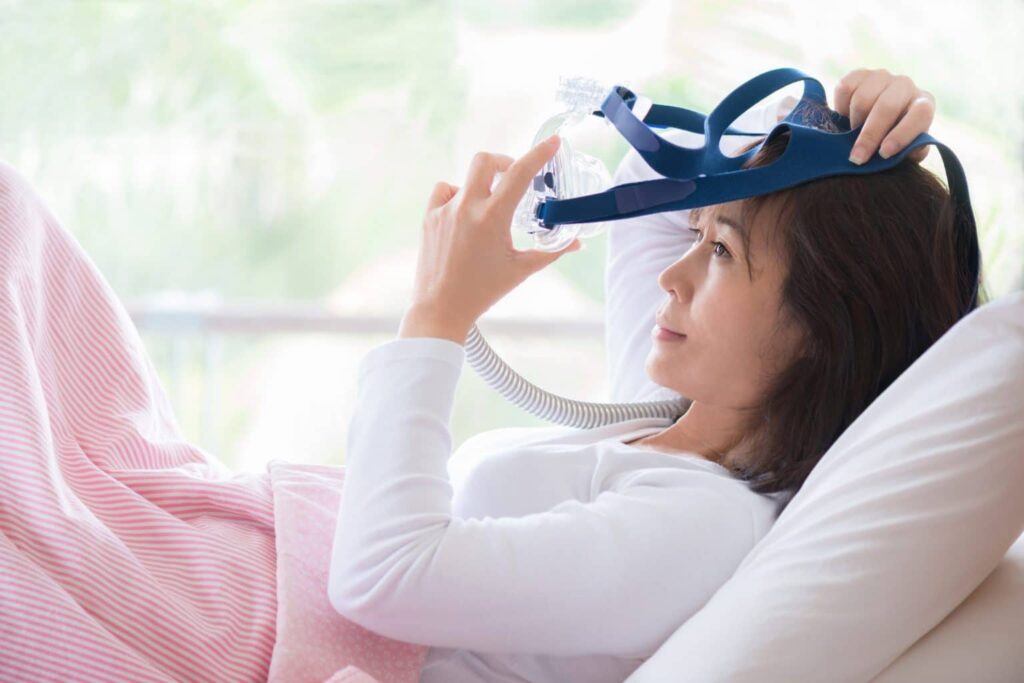The Causes of CPAP Mask Failure and How to Prevent Them.

In the early phases of treating sleep apnea, CPAP mask intolerance also known as CPAP mask failure can develop for a number of reasons. If you want to reap the numerous benefits of using continuous positive airway pressure (CPAP), it is imperative that any issues be identified and resolved during the transitional period.
Why is it called CPAP failure?
The term “CPAP failure” is rather severe. In most cases, it indicates intolerance to the cpap masks. When a patient has trouble sleeping while using CPAP, he is less likely to use it consistently. However, regular use is essential, both for the purposes of therapy and of receiving payment from insurance providers.
The CPAP Failure and Insurance Companies
Modern CPAP equipment have tracking features that may be accessed by doctors who specialise in sleep medicine and health insurers.
In either case, the data is sent to the sleep clinic for analysis through a card within the equipment or by a wireless service streaming to a modem.
When an insurer examines a patient’s use records and finds that the sum does not meet their thresholds, the patient is given a “failed” status. They will see that person as a noncompliant user. If the patient does not return the machine, the insurance company may refuse to pay for it or its supplies.
See also: The Best High-Pressure CPAP Masks Recommendations

Professional Sleep Analysis and the CPAP Crisis
Your sleep specialist recommends that you use your therapy so you can feel better, and they may define “compliance” as a sliding scale of usage over time, keeping in mind that many people find it most tolerable to ease into CPAP therapy gradually.
Still, they are concerned about compliance issues since, despite progress, a patient may still not be deemed compliant and may even lose their therapy owing to a “use it or lose it” mindset among insurance payers.
You may be surprised to learn that there is no universally agreed-upon definition of CPAP failure, which means that different people may assign very different meanings to the term and have very different implications for your ability to upgrade to a more sophisticated PAP device.
In conclusion, CPAP failure is multifaceted, and the most critical aspect should be centred on a patient-centered approach to treatment.
For this reason, sleep clinics often follow up with new CPAP users many times over the course of the first few weeks of treatment. This is done to ensure that patients not only comply with their treatments but also get long-term alleviation from their sleep apnea symptoms.
Sleep doctors know that there isn’t a single best option when it comes to CPAP masks Australia, pressure settings, or treatment modes.
To what extent does a CPAP failure affect health?
The most obvious danger is that your sleep apnea may worsen if you don’t get treatment for it. Cancer, brain damage, stroke, diabetes, heart disease, and other chronic, life-threatening illnesses are of great concern.
CPAP is not a treatment that can be used “whenever you feel like it;” you must use it regularly for it to be effective, and failing to do so will result in a return of the symptoms that prompted you to seek medical attention in the first place.
But if you don’t use your CPAP as prescribed, you run the danger of having your equipment and supplies taken away.
The significance of CPAP adherence?
The real difficulty is in figuring out what treatment is going to be best for your sleep breathing condition, not in using CPAP. If PAP therapy doesn’t work for you, don’t feel bad about yourself or give up hope.
There are other non-invasive breathing options like APAP, BiPAP, and ASV which are often covered by insurance, but sometimes you have to “fail CPAP” first to be considered for other options. In that situation, your supposed setback might pave the way to a more preferred form of treatment.
If CPAP intolerance is your worry, talk to your sleep doctor about what other choices you may have. The top sleep centres can help you discover the therapy you need to get your health and happiness back on track.

Preventing CPAP Mask Failure: Precautions
With the guidance of a sleep professional, you don’t have to live with CPAP Mask intolerance (or untreated sleep apnea) for the rest of your life.
Try some of these ideas, but don’t be afraid to reach out for assistance if you need it.
Learning to adapt. To get acclimated to how the mask fits on your face, try wearing it without the hose during the day (when reading or watching TV). If you suffer from claustrophobia, this technique may help you overcome your fear of enclosed spaces and de-sensitise you to the sensation of being trapped.
Talk to your DME provider about adjusting the pressure settings on your device. Sometimes, you may alter your settings within a range to make it easier for you to breathe. CPAP masks come with customizable pressure support settings. Flexibility in pressure delivery is built into APAP (auto-titrating positive airway pressure) devices.
The inhalation and exhalation pressures of a bi-level positive airway pressure (BiPAP) machine can be independently adjusted or “tuned,” either manually or automatically, to the user’s unique breathing patterns.
Pressure settings are often adjusted at the start of therapy and then again afterwards. You have the right to request changes to your prescription and provide an explanation. The best DME suppliers will have mastered every technique for making treatment more tolerable. Changing the manner of delivery might be necessary.
See a sleep doctor if you’re having trouble sleeping due to discomfort. They can assist you adjust the pressure, mask fit, and mask type if you have problems with red markings on your face, excessive gas, headaches, prolonged daytime weariness, frequent awakenings, and dry mouth.
You should find someone to lean on. You may learn a lot from talking to people who have been using the system for a long time, and you could even make some new friends.
Conclusion
Please keep in mind that your goal in using a CPAP mask is to alleviate the symptoms of a chronic health condition. You are at danger of “failing CPAP Mask” if you are unable to successfully use it. If you are having difficulty with your therapy, don’t be afraid to reach out to us at Air Liquide Healthcare for assistance.
We have the knowledge and training to address your concerns and provide you with a variety of treatment alternatives to maximise the positive outcomes of your care.
